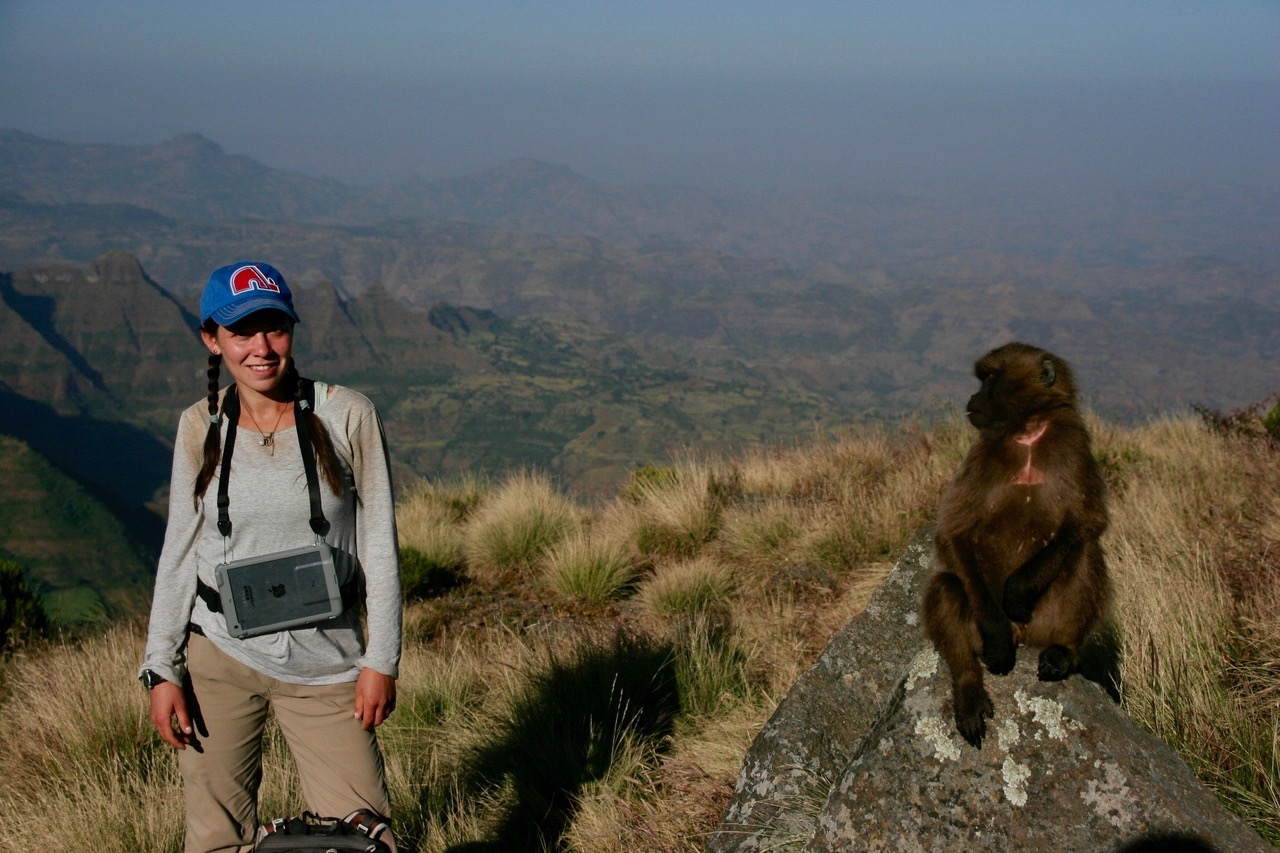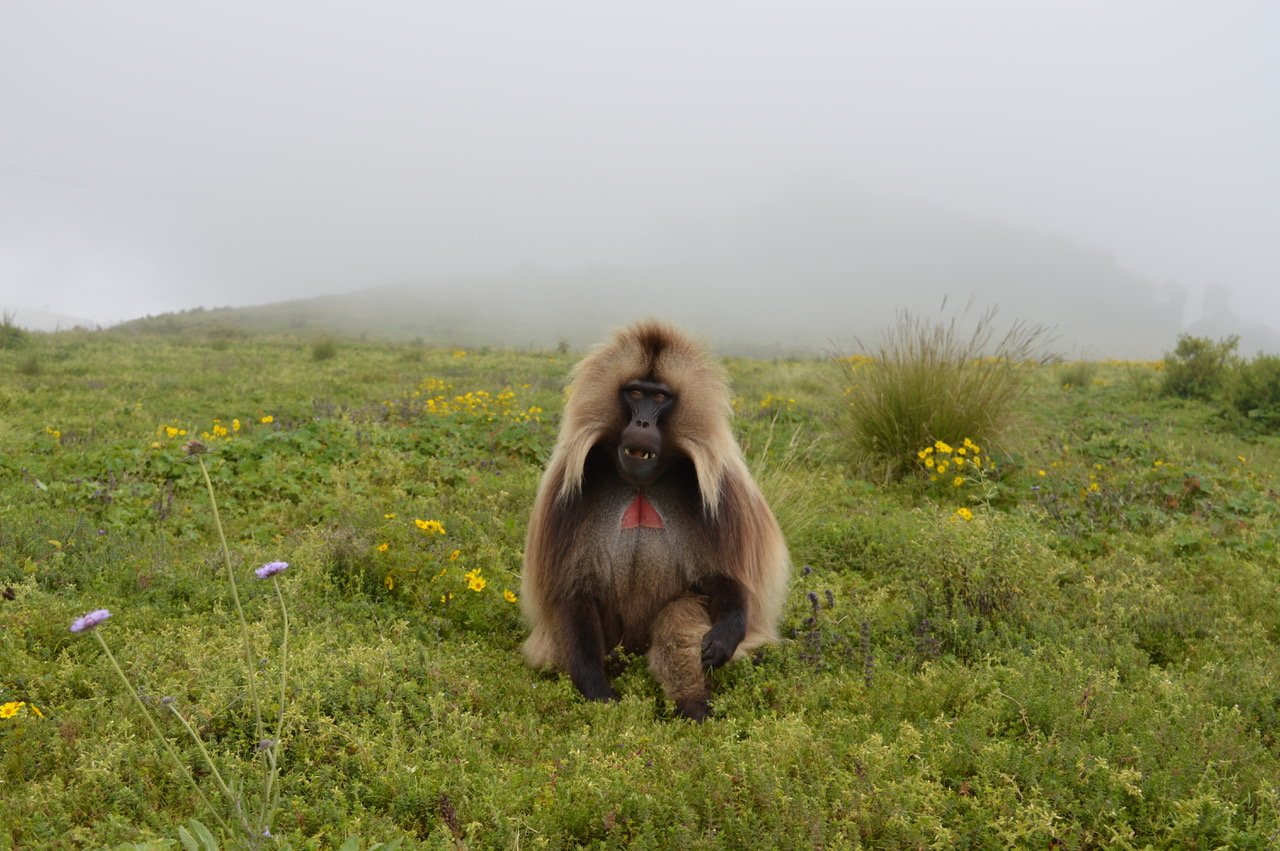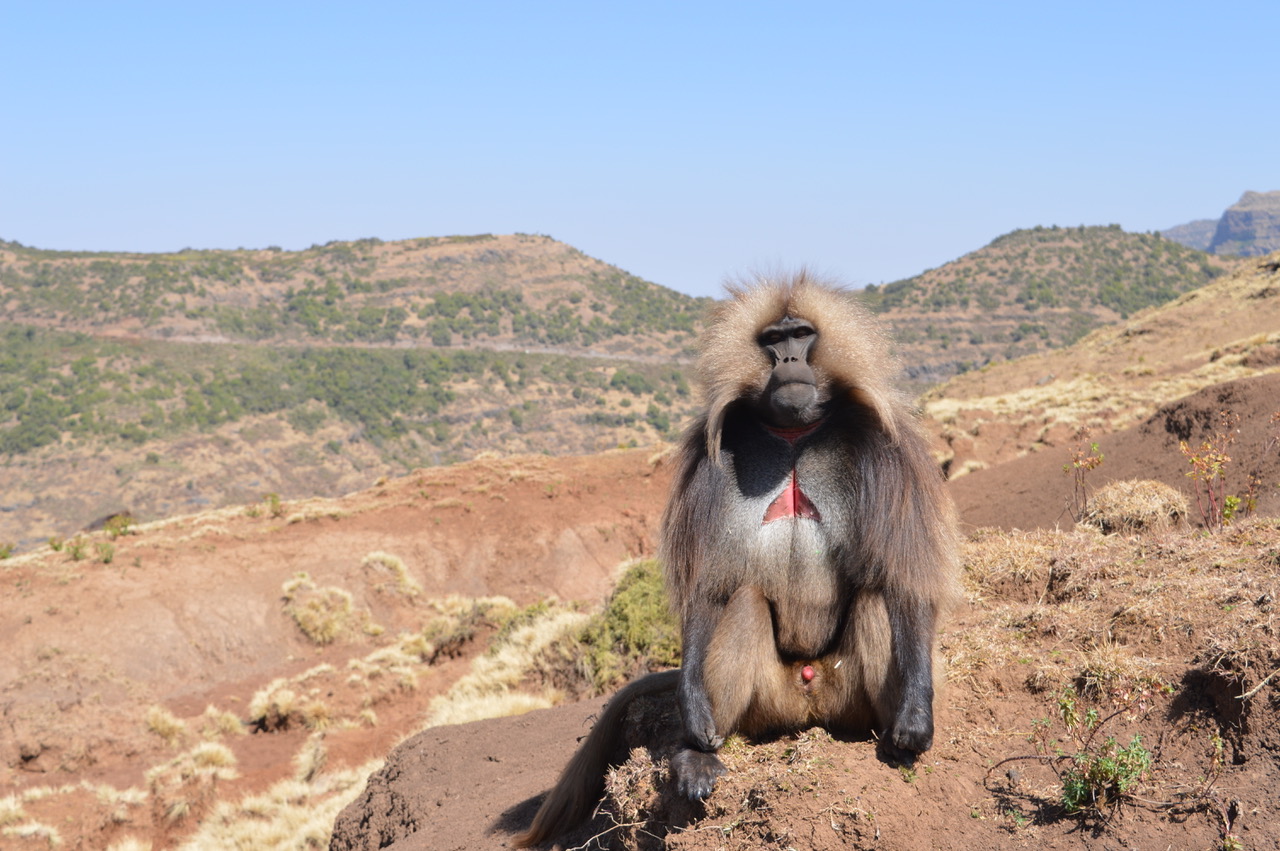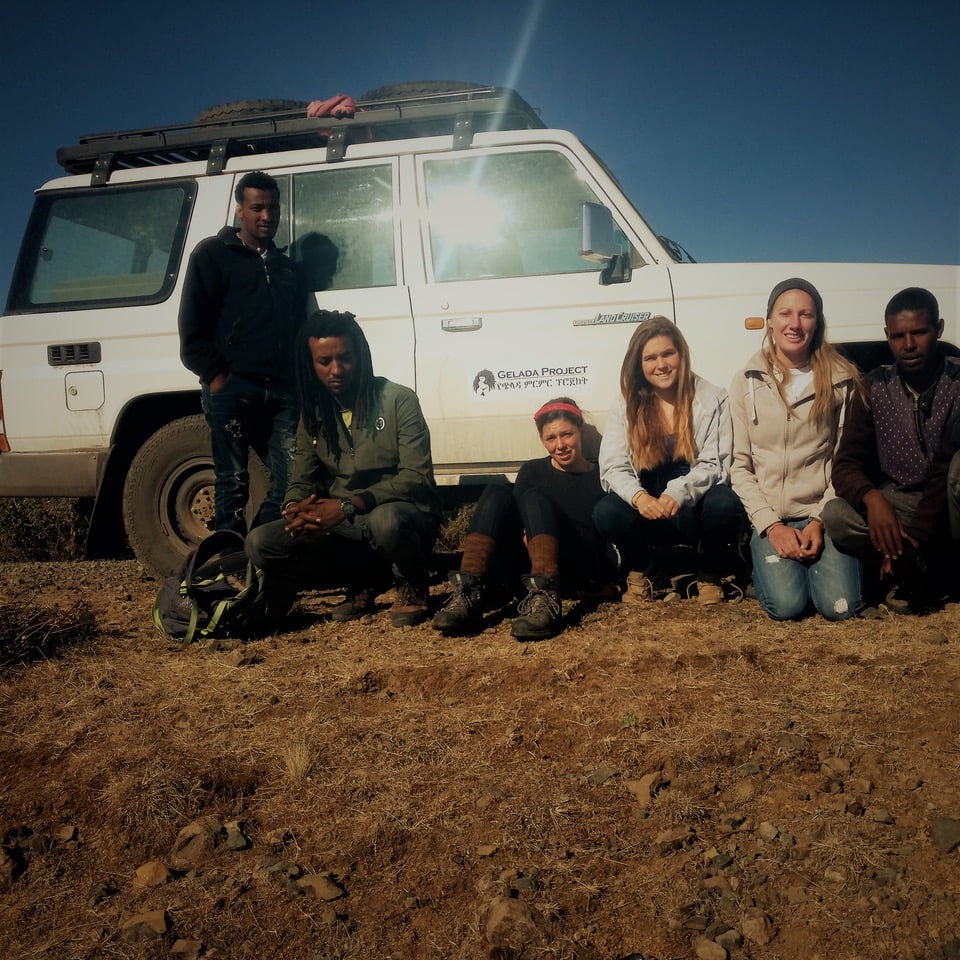From the Field
Rachel Perlman is a PhD candidate at Stony Brook University. She was awarded a Leakey Foundation Research Grant during our spring 2016 cycle for her project entitled “The energetics of male reproductive strategies in geladas (Theropithecus gelada).” Click here to read a short summary of her work. Here she updates us on her field work.

Salam nachu from Simien Mountains National Park, Ethiopia! I am just over halfway done with data collection for my dissertation here as part of the Simien Mountains Gelada Research Project. It has been an eventful field season so far, filled with hiring and training two new local field assistants and being part of the inauguration and organization of monthly conservation trash clean-ups in the national park. In my first months here, I helped develop a behavioral data collection program tailored to geladas, as our project made the transition from palm pilots to iPads. Data collection for my dissertation is turning out to be exciting and providing me with great perspective on the trajectories of male reproduction. I have the unique opportunity to spend time both with our two main bands of geladas as well as several bachelor groups.
Support research projects like this one. Your donation will be doubled! Click here.
My research investigates how variation in energetic condition influences the reproductive strategies of male geladas. To examine this, I split my time collecting data on two types of males: (1) leader males of reproductive units and (2) bachelor males in all-male groups. Although subordinate males sire a small proportion of offspring, becoming a leader is the primary reproductive tactic for a gelada male. Bachelor males lack reproductive opportunities unless they take over a leader male’s unit. Takeovers can be pretty dramatic events that are characterized by a lot of chasing and fighting. A male who is in great energetic condition probably has a greater likelihood of winning such events and therefore gaining reproductive access to females and improving his overall reproductive success.

At the root of my research questions, I aim to broadly understand how the physical condition of leader and bachelor males fluctuates across the seasons. I arrived to the Simien Mountains at the end of the rainy season, and it was fascinating to witness changes in the landscape during the transition to the dry season over the past few months. Green, luscious grass turned brown and brittle, gushing rivers turned to trickling streams and then to stagnant, isolated pools, and muddy roads are now dry and dusty. With this transformation came changes in gelada behavior. Now that water sources are fewer and farther between, we see our study individuals start to range in different areas of the park. They also have begun to exploit different food resources. Geladas maintain their graminivorous diet; however, we see a transition from picking blades of grass to spending more time digging and processing underground items. While potentially more nutritious, these roots and tubers can involve longer processing times and may be more energetically costly than simply grazing for grass.

Dry season in the Ethiopian highlands also brought about its set of challenges for my own research. An important biomarker to understand an individual’s energetic status is C-peptide, a molecule we are only able to characterize via urine samples. Unfortunately, a decrease in water supply means the monkeys excrete less overall during the dry season. Coupled with this, the environment is so arid that the urine often immediately evaporates into the air or otherwise disappears into the dry dirt! Collecting C-peptide samples has also proved challenging because we ideally need to measure it from the monkey’s first void in order to capture baseline energetic values. As Afroalpine-dwelling primates, geladas sleep on the edges of cliffs (where us less nimble humans unfortunately cannot get to!). During this time of year, some of our units sleep in very hard to reach spots and others sometimes come up from their sleeping cliffs late, meaning we often have likely missed their first void and they’ve already begun to feed! Urinary C-peptide is definitely a tricky biomarker, but it promises to be extremely informative for understanding energetic variation across the year for these monkeys. I am really looking forward to seeing what these samples reveal.
Most recently, it is a very exciting time of the year here in the mountains – both in gelada society and in my research. In our study population, we see an annual ‘takeover season’, typically occurring from February to June each year. During this time, there is an increase in male-male fighting, unit takeover attempts, and true takeover events. We are beginning to observe changes in everyday social dynamics in the two bands we follow, particularly an increase in aggressive interactions, both within and between reproductive units. Bachelor males are also beginning to hang around the bands more frequently (great for my data collection!), causing the leader males to be increasingly on edge. We are looking forward to seeing what this year’s takeover season may bring for our study groups. Last year, we only had one known unit experience a takeover and we currently have several leader males with fairly long existing tenure lengths, so this year holds great promise for some interesting changes in our leader male lineup. Stay tuned!



